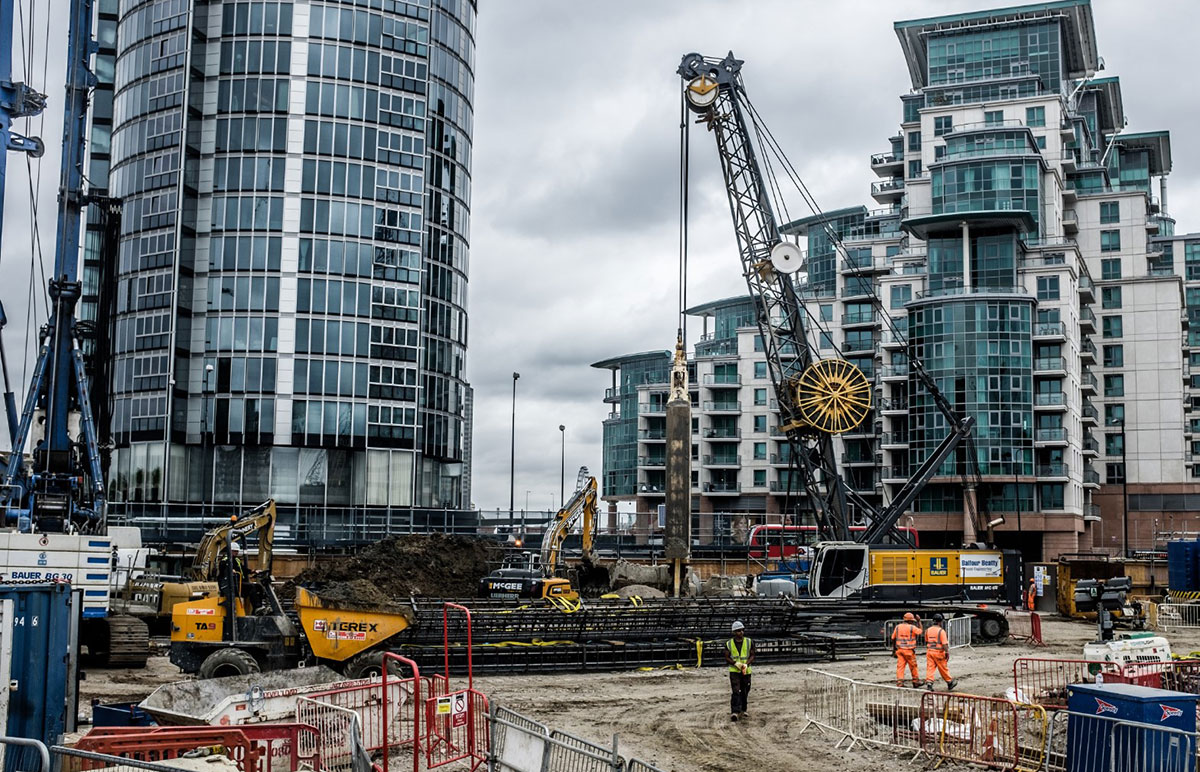An Unbiased View of Geotheta
An Unbiased View of Geotheta
Blog Article
Not known Details About Geotheta
Table of ContentsAll About GeothetaAn Unbiased View of GeothetaWhat Does Geotheta Mean?A Biased View of GeothetaThings about Geotheta

They conduct website investigations, accumulate samples, carry out lab examinations, and assess information to review the viability of the ground for building jobs - Engineer of Record. Based upon their searchings for, geotechnical engineers provide recommendations for foundation style, incline stability, maintaining frameworks, and reduction of geotechnical threats. They team up with various other specialists, such as engineers, architectural designers, and building and construction groups, to make certain that geotechnical factors to consider are integrated into the overall project design and implementation
By examining the habits and residential properties of dirt and rock, they can determine potential geotechnical risks such as landslides, dirt settlement, or incline instability. Their experience helps protect against failings or mishaps that might endanger lives and residential property. Right here are some detailed responsibilities and responsibilities of a geotechnical designer: Website Investigation: Geotechnical designers conduct site examinations to collect data on subsurface problems.
They interpret the data to recognize the residential or commercial properties and behavior of the soil and rock, including their stamina, permeability, compaction attributes, and groundwater conditions. Geotechnical Analysis and Design: Geotechnical designers examine the information collected throughout website investigations to assess the security and suitability of the website for building jobs. They do geotechnical computations and modeling to assess elements such as bearing ability, negotiation, slope security, side earth pressures, and groundwater flow.
Excitement About Geotheta
Structure Design: Geotechnical designers play an important role in making structures that can safely sustain the designated structure. They analyze the soil problems and lots requirements to determine the appropriate foundation kind, such as superficial foundations (e.g., grounds), deep foundations (e.g (https://yoomark.com/content/httpsgeothetacom)., heaps), or specialized methods like soil improvement. They take into consideration aspects such as settlement limitations, bearing ability, and soil-structure communication to create optimum foundation layouts
They evaluate building and construction plans, display website activities, and conduct area evaluations to verify that the style suggestions are complied with. If unpredicted geotechnical problems arise, they examine the situation and supply referrals for remediation or changes to the design. Threat Assessment and Mitigation: Geotechnical engineers analyze geotechnical dangers and dangers connected with the task website, such as landslides, liquefaction, or soil disintegration.

Partnership and Interaction: Geotechnical engineers function closely with other experts associated with a job, such as designers, architectural designers, and building and construction groups. Effective interaction and partnership are necessary to incorporate geotechnical considerations into the general task design and construction process. Geotechnical designers offer technological proficiency, response questions, and guarantee that geotechnical demands are fulfilled.
Unknown Facts About Geotheta
Below are some sorts of geotechnical engineers: Foundation Engineer: Foundation engineers specialize in developing and assessing structures for structures. They examine the soil problems, tons demands, and website characteristics to figure out the most appropriate structure type and style, such as superficial structures, deep foundations, or specialized techniques like pile click site foundations.
They assess the elements influencing incline security, such as dirt properties, groundwater problems, and incline geometry, and establish strategies to avoid incline failures and reduce dangers. Earthquake Engineer: Earthquake designers concentrate on analyzing and creating structures to hold up against seismic pressures. They examine the seismic risk of a website, examine soil liquefaction potential, and create seismic layout criteria to ensure the safety and security and strength of structures throughout earthquakes.
They carry out area screening, collect examples, and examine the accumulated data to identify the soil residential properties, geologic formations, and groundwater problems at a website. Geotechnical Instrumentation Engineer: Geotechnical instrumentation designers concentrate on monitoring and determining the actions of soil, rock, and frameworks. They install and maintain instrumentation systems that check aspects such as dirt negotiation, groundwater degrees, slope activities, and structural displacements to evaluate efficiency and offer very early warnings of possible problems.
Geotheta Things To Know Before You Get This
They carry out examinations such as triaxial examinations, consolidation examinations, direct shear examinations, and permeability tests to collect information for geotechnical analysis and style. Geosynthetics Designer: Geosynthetics engineers specialize in the design and application of geosynthetic products, such as geotextiles, geogrids, and geomembranes. They make use of these materials to enhance soil stability, enhance slopes, supply water drainage options, and control disintegration.
They have a tendency to be investigative people, which suggests they're intellectual, reflective, and investigative. They are interested, systematic, rational, analytical, and sensible. Some of them are also social, indicating they're kind, generous, cooperative, client, caring, practical, empathetic, sensible, and pleasant - Geo Tech Engineer.
In the office environment, geotechnical designers make use of specialized software devices to do calculations, develop layouts, and evaluate data. They prepare reports, review job specifications, communicate with clients and group participants, and coordinate job tasks. The office setup provides a helpful setting for research study, evaluation, and collaboration with various other specialists associated with the task.
Excitement About Geotheta
They regularly go to project websites to carry out website investigations, analyze geotechnical conditions, and collect information for evaluation. These gos to entail traveling to different places, occasionally in remote or tough surfaces. Geotechnical engineers may execute soil sampling, conduct examinations, and screen building tasks to ensure that the geotechnical elements of the task are being implemented properly.
Geotechnical engineers additionally operate in specialized geotechnical labs. In these facilities, they conduct experiments, execute tests on dirt and rock examples, and assess the engineering properties of the products. Geotechnical lab engineers work thoroughly in these atmospheres, managing testing devices, operating tools, and tape-recording data. They team up with other lab team to ensure precise and reliable testing results.
Report this page